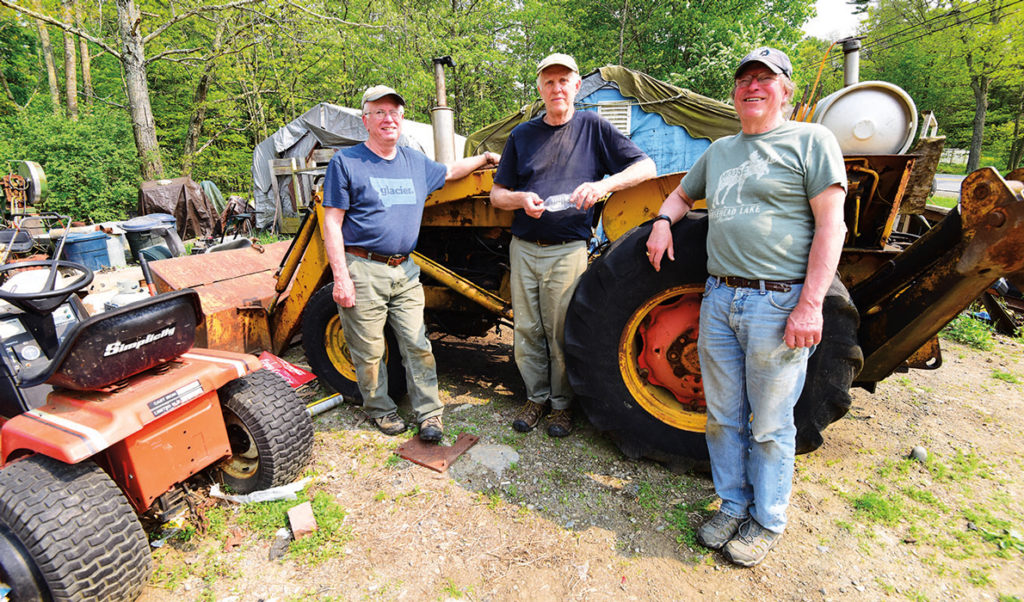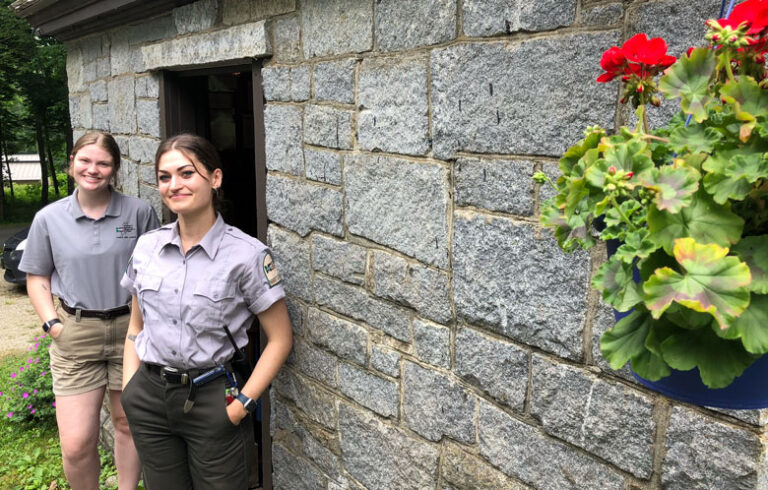By Sally Noble
From the more affluent coast to the very heart of Lincoln County, wealthy and far less wealthy towns have joined as an unusual community, woven together to give sweet meaning to the word “neighbor.”
Here the volunteers of the Community Housing Improvement Project, or CHIP, an ecumenical non-profit, perform tangible acts of kindness for the vulnerable and poor who live amongst them. This spirit of neighbors helping neighbors is working in the towns of Alna, Bristol, Bremen, Damariscotta, Jefferson, Newcastle, Nobleboro, Somerville, South Bristol, Waldoboro, and Whitefield.
CHIP’s board of directors is a consortium of church representatives, with a resourceful, part-time employee in Brittany Gill, the effort’s coordinator. She’s the first to assess the best way to help her neighbors stay “safe, warm, and dry,” which is the founding mission statement written nearly 35 years ago by Ruth Ives, CHIP, Inc.’s founder.
When Gill goes on a site inspection, responding to either word-of-mouth or a direct call for help, she is literally the voice of CHIP, and it sounds like pure rescue.
Since October 2018, the start of its fiscal year, this force of neighbors in action has already completed projects on over 20 homes for people who could not afford the necessary repairs, Gill says.
“This fall, we built a ramp for a man who lost his toes, balance, and the ability to enter his home safely. Mid-winter, we insulated a floor system for a man with severe nerve pain who is living on a very limited income,” Gill proudly recalls. “And recently, we installed a new door for a woman who was keeping her front door closed with some string.”
A gang of nine retired men and women, who call themselves The Regulars, do CHIP’s carpentry work every Wednesday and Friday.
“Our average age is 74, and we include a minister, two professors, and one FBI agent,” says Tim Mellen, the leader of the group, all of whom had no prior carpentry experience.
“We all just learned by working with professionals who taught us.”
The Regulars are adept at building customized ramps for the newly disabled. Mellen is a retired businessman who now ponders the challenges of trailer repairs.
“They have no foundation,” he explains. “And their windows are not standard.”
CHIP also stands behind the “warm” promise of its motto, providing heating assistance as a solution of last resort.
“If someone doesn’t receive their heating assistance in a timely fashion,” explains Gill, “there’s a crisis.”
Last winter, from November to March 1, CHIP assisted 280 households by donating 100 gallons of fuel or a cord of dry firewood. An octogenarian split the wood.
The Regulars provide free labor and neighborly bonhomie, but materials cost money, as does the cost of the occasional roof-repair contractor. Donations cover the cost of materials: $600 buys a new door, $1,000 buys materials for a ramp, and $50 buys a roll of insulation. CHIP’s $200,000 operating budget comes from church donations and grants, sometimes from the most unusual places.
For example, Darryl McKinney, the overseer for the poor in the town of Waldoboro, also works with Gill, helping to fund materials the volunteer carpenters use. A man of few words, he oversees the Philbrook Foundation, “founded 200 years ago or so to help the worthy poor of Waldoboro,” he explains. “The fund is about $500,000. CHIP receives about $10,000 in interest from the fund.”
Someone recently donated a car.
“We work with whatever we get,” says Gill.
Enthusiastic, youthful labor arrives every July, when high school students travel from Basking Ridge, N.J., for a weeklong service project. And on Community Care Day, Sept. 7, over 100 volunteers are expected to work on everything from sandwich making to local carpentry. Traditionally, a special contingent from Lincoln Academy in Newcastle also participates in Community Day.
“This year we’re making window inserts,” says Sarah Kennedy, program associate for Lincoln Academy Residential Life Program. Most of her 30 or so students come from abroad and volunteer labor “isn’t part of their norm,” explains Kennedy.
Information for signing up will be on CHIP’s website, www.chipinc.org.
Finally, there’s the CHIP Shed, located next to The Carpenter’s Boat Shop, the boat building apprenticeship program created by Ruth and Robert Ives. This humble, ample shed is a place where furniture and appliances (in good working order) are exchanged. Someone who is upgrading, renovating or cleaning out a home, might donate a piece. Someone else comes to find something they need.
“Washers, driers and refrigerators are always in demand,” says Gill.
“It’s really just a shed,” she laughs. “With an automatic light that turns on when you’re looking.”
Interested in reaching CHIP? Call 677-3450 for the voicemail box. Dial 211 if you forget this number.





